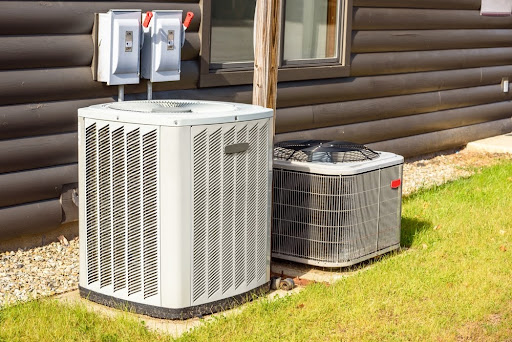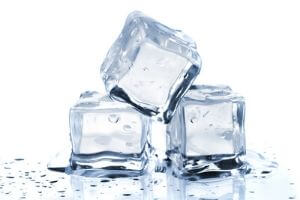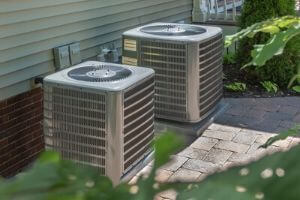Ever noticed how our senses can pick up on things that feel a bit off? Whether it's the subtle drip of a faucet or that faint squeak of a loose floorboard, we’re pretty good at sensing when something in our home needs attention. Smells especially have a way of alerting us, don’t they? If you’ve ever flipped on your furnace and been hit with a strong burning odor, it’s not just your nose being sensitive — it’s your home’s way of telling you something might be up.
In this blog, we'll dig into why that burning smell from your furnace is happening, what it could mean, and when it’s time to take action.
Common Causes of a Furnace Burning Smell
The smell of something burning when your furnace kicks on can be alarming, but it’s not always a cause for panic. There are a few common culprits behind that burnt smell from your furnace.
Burning Dust
When you first turn on your furnace after it’s been off for a while — like at the start of winter — it’s normal to smell a bit of burning dust. Dust collects on your furnace’s heating elements during the warmer months, and once you fire it up, that dust burns off, creating a distinctive smell. This burning dust smell usually fades after a few hours.
Clogged Air Filter
Air filters are designed to trap dust, dirt, and other debris, so they don’t clog up your furnace’s internal components. But when the air filter itself gets too full, it restricts airflow, causing your furnace to work harder. This can lead to overheating, which in turn might cause a burning smell. Replacing or cleaning your air filter regularly can help you avoid this issue altogether.
Burning Plastic
If the burning smell is sharper and smells like plastic, it’s a sign that something in your furnace might be melting. This could be due to overheated wires, an issue with the blower motor, or other electrical components. If your furnace smells like it’s burning plastic, turn it off and call a professional — melted plastic and electrical odors can pose serious risks.
Is It Normal for My Furnace to Smell Like It’s Burning?
Certain smells are normal, especially when you’re first turning on your heating system for the season. However, there are times when a furnace burning smell can signal a serious issue. Here’s a breakdown of what’s normal and what isn’t.
What’s Considered Normal?
As mentioned, the smell of burning dust is normal, notably if it fades after a short time. Also, as the furnace heats up or cools down, you may notice a burnt smell from your furnace, but this usually goes away quickly.
When to Worry
A burning smell coming from your furnace can be alarming and signal that there’s an issue that needs attention. While some odors, like dust burning off at the start of the season, are normal, others may indicate serious problems. Here are some instances when this strange smell can be a cause for concern:
- Persistent Burning Smell: If the smell doesn’t fade, it could indicate a larger issue, like an overheated fan motor or clogged air filter.
- Chemical Odors or Burning Plastic: These smells can mean that electrical components are overheating or melting, which could create a fire hazard.
- Rotten Egg or Sulfur Smell: If your furnace smells like rotten eggs, it could be a natural gas leak. In this case, leave your home immediately and call your gas company.
Possible Issues Behind a Burning Smell From Your Furnace
The reasons behind a furnace burning smell vary, and the severity of the issue can range from minor to serious. Here’s a deeper look at what might be happening inside your furnace.
Overheated Blower Motor
When your furnace’s blower motor becomes overheated, it can emit a strong burning smell. This often happens if there’s an issue with the motor’s internal components, like faulty wiring or excessive dust buildup. If the burning smell persists, it’s time to call an HVAC technician to inspect the system.
Electrical Burning Smells
Electrical burning smells aren’t something to ignore. If you notice this, it could be due to wiring problems, an overheated blower motor, or issues with the furnace’s electrical components. Electrical smells may also be caused by melting plastic wire casing. These issues can be hazardous and should be checked by a professional.
Heat Exchanger Issues
A cracked heat exchanger is a serious problem that can lead to a dangerous situation. The heat exchanger separates the hot air from gases like carbon monoxide. If it cracks, it can release these harmful gases into your home, reducing indoor air quality and posing a risk of carbon monoxide exposure. A heat exchanger problem is often accompanied by a burning odor and requires immediate attention.
How to Address Common Furnace Burning Smells
Let’s look at the steps you can take to troubleshoot and handle a furnace burning smell.
Replace the Air Filter
The first line of defense against overheating and poor airflow is a clean air filter. A clogged air filter can cause the furnace to overheat, resulting in a burning smell. Most manufacturers recommend replacing the furnace air filter every one to three months during peak use. If you notice poor air movement, the filter might be to blame.
Inspect the Blower Motor
The blower motor circulates warm air throughout your home, but if it’s malfunctioning, it can overheat and cause a burnt smell. If you suspect an issue with the blower motor, it’s best to have it looked at by an HVAC technician. They can inspect the fan motor, check for dust or debris, and replace any worn-out parts.
Check for Gas Leaks
If your gas furnace smells like it’s burning or if there’s a rotten egg smell, this could indicate a gas leak. Gas leaks are serious safety hazards that require immediate action. Leave your home, avoid using electrical devices, and contact your gas company right away. Regular maintenance can help catch these issues early.
Call for Furnace Repair
If your gas furnace smells like it’s burning and the odor doesn't go away, it’s worth getting a professional’s opinion. A licensed technician can pinpoint the issue, from an electrical burning smell to a faulty heat exchanger, and recommend repairs to keep your furnace running safely.
Why Regular Furnace Maintenance Is Important
Preventing issues with your furnace — including unwanted burning smells — starts with regular maintenance. Here’s how routine check-ups can help.
Cleaning and Inspection
During a maintenance visit, technicians clean the furnace and inspect key components like the heat exchanger, blower motor, and electrical parts. This prevents dust from building up and helps the heating system function smoothly.
Carbon Monoxide Detectors
Carbon monoxide (CO) is a colorless, odorless gas produced by furnaces, which is why a CO detector is essential in your home. Regular maintenance can also include checking carbon monoxide detectors to confirm that they’re working properly, helping you catch any issues with your heating system before they turn dangerous.
Prevent Expensive Repairs
Taking proactive steps with maintenance can prevent costly repairs in the future. Catching small issues — like dust buildup or a dirty air filter — can stop them from developing into major problems that result in a smelly furnace.
Should You Consider Furnace Replacement?
If your furnace is old or has frequent issues, replacement might be a more cost-effective option in the long run. Furnaces that are 15 to 20 years old may struggle to keep up, and persistent burning smells, constant repairs, or decreased efficiency are signs it could be time for an upgrade.
Consider reaching out to G.F. Bowman for a professional furnace replacement in Harrisburg or one of the surrounding areas if:
- Your furnace is over 15 years old.
- Repair costs are adding up.
- The burning smell persists despite repairs.
- Your furnace no longer heats effectively.
When to Call for Emergency Heating Repair
If a burning smell from your furnace is accompanied by unusual sounds, poor heating performance, or safety concerns, you may need emergency heating repair. G.F. Bowman offers emergency repair services in Harrisburg, PA, with expert technicians trained to diagnose and fix any heating problem safely.
Don’t Ignore Burning Smells — Contact G.F. Bowman Today!
No one wants to deal with a smelly furnace, but ignoring a burning smell from your furnace can be risky. Whether it’s something as simple as a dust burn or as serious as an electrical issue, addressing these smells early on can help keep your family safe and warm.
Contact G.F. Bowman for reliable furnace repair in Harrisburg, PA, or one of the nearby areas today! Our experienced team is here to troubleshoot, repair, and, if needed, replace your heating and cooling system.








 The first easy way a homeowner can fix central HVAC systems without having to contact a professional, especially when having issues in the cold, is by checking the condensate drain line for ice.
The first easy way a homeowner can fix central HVAC systems without having to contact a professional, especially when having issues in the cold, is by checking the condensate drain line for ice.
 While it is great to know how to fix central HVAC systems themselves, it is even more important to avoid needing to know how to perform them. The best way to do this is for homeowners to make sure to have regular
While it is great to know how to fix central HVAC systems themselves, it is even more important to avoid needing to know how to perform them. The best way to do this is for homeowners to make sure to have regular  1..
1..
 2..
2..
 3..
3..
 4..
4..
 5..
5..
 6..
6..